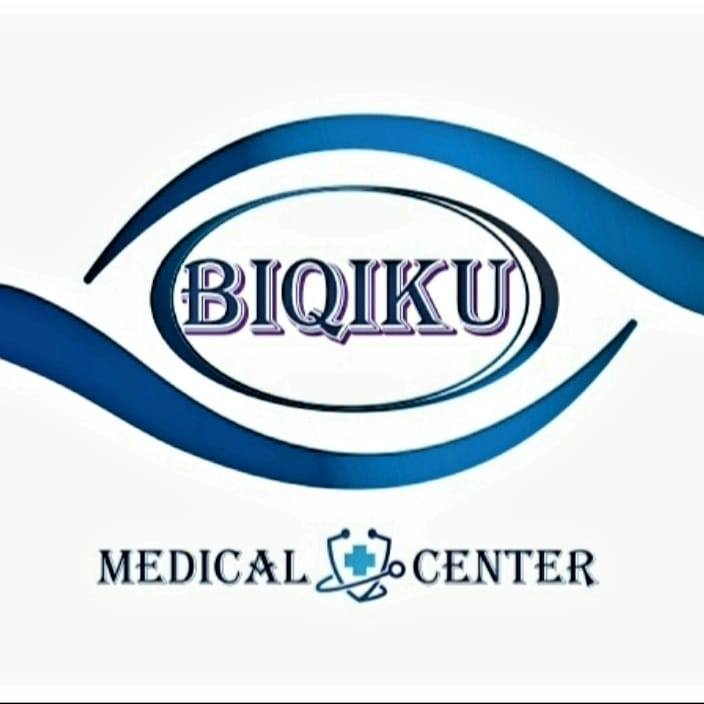Content
Providing excellent support should not be limited to helping the customer solve their problems. Instead, it should be creating an experience that will make the customer want to buy more now and in the future. An essential aspect of the lead management component is lead prioritization. This means using the available data to identify the best leads prone to becoming customers and those who will probably require more time and effort. When this is done, the information can be given to the sales team to focus on those leads who are a priority. The analytics function involves diving deep into customer data to identify trends and better understand customer behaviors.
- This can increase customer loyalty and give them a reason to stick around.
- Then marketing will retarget the customer with email sequences that will offer similar flight experiences and improved ones for future trips, so the process starts again.
- Moderate learning curve and limitations in terms of customization/configurability could be a problem for small businesses.
- An operational CRM can improve organizational efficiency leading to improved processes, internal cohesion and overall customer satisfaction.
The easiest and most “close to cash” method of customer self-service is managing their billing and payment information. Offer a customer portal to sign in and update their method of payment, storing it safely in your operational CRM, not a sticky note. So your customer didn’t come back and buy the new-and-improved service. Don’t depend on a person to manually send out a welcome email every time someone visits your site or calls your company. In this guide, you’ll learn about the components of successful CRM systems, including best practices that minimize costs and achieve higher revenue growth.
Customer service with an operational CRM
As a business, you should acknowledge the trend to start integrating the CRM software into your process as soon as possible. Before picking one system that works best, you should know the types of CRM systems, their features, benefits, and suitable users. We put the most weight on the providers’ niche features, including workflow automation, document management tools, and AI capabilities. We also looked if they offer crucial features like lead and opportunity management. Operational CRM is better for companies who aren’t familiar with CRM yet, since it can cover the basic areas most businesses need assistance on.
Anticipating customer requests and speeding up the sales process makes your company look very chivalrous indeed. As a rule, a reliable operational CRM will provide you with a set of ready-made customizable templates, which you may use for your sales and marketing purposes and save much of your time. You can access them either by purchasing a respective software plan or make your own by using online form builders. With cloud-based contact management system functions, you and your team can keep track of your client’s important data and access it at any time. That way, no matter who your team is interacting with, they’ll have all of the crucial info necessary to resolve their concerns.
Analytical CRM is all about data—storing it, processing it, and making it useful with insights into business processes. CRM applications in this category work behind the scenes with your sales, finance, and marketing data, driving better customer retention and acquisition and rationalized data management. Opportunity management software can develop systems for assigning leads to sales reps who have the availability to focus on them.

You want a CRM system robust enough to manage all of your prospect and customer interactions. While each type of CRM has its place, and one may fit a company more than another, operational CRMs are a great benefit to companies who want to drive customer satisfaction and loyalty. Every single customer is a potential repeat customer, no matter how long ago they purchased from you. Use your operational CRM to track a customer’s last purchase and their last interaction with your company to target them in a re-engagement campaign. Don’t let leads languish on a list somewhere until you have time to assign them.
We’ve compiled the best practices found in the industry’s most successful companies. DownloadNextiva’s CRM strategy guide and you’ll be ready to take on your company’s CRM needs. Managing a successful salesperson’s calendar can be near impossible. Don’t make your sales team act as their own personal assistants. Harness the power of your operational CRM to do the hard work for them. Imagine giving them a report each morning of goals and productivity, contacts made, and sales closed.
Best Operational CRM Platforms for 2023
But a great system will do much more than that, from automating initial contacts all the way through setting up sales meetings. Polling conducted by HubSpot points to manual data entry (23%) being the top pain point about using a legacy CRM. Following that, the difficulty in tracking the sales pipeline is a close third (13%) for user frustrations. The final stage in sales is to communicate a new customer’s requirements to their service and support teams. Contact Management − It is enabled with the features such as customers’ contact details, salespersons’ calendar, and automatic dialing numbers. Using this application, a user can communicate effectively with the customers.
It is estimated that 90% of organizations with more than 11 employees use this form of CRM. Supported by SuiteCRM community, which means if you have any issues, support response time is going to be highly variable. Learning curve is higher than a lot of proprietary (i.e. not open https://xcritical.com/ source) CRMs. Keap has many features, and you may not need to use all of them. This is an issue because the vendor’s pricing tiers are fairly inflexible, with the entry-level plan already being relatively high (you can’t opt-out of certain features and get a lower price).
If you have ahelp desk software, you can integrate it into your currentCRM platformfor smooth interaction between sales and service. Until a few years ago, support and service staff did not have access to the same information that sales and marketing had. However, in recent years, all customer-facing departments have got access to customer data. The app makes it easy to build repeatable sales processes, build campaigns and automate sales and marketing. The drag-and-drop interface makes it super easy to build custom automations .

It’s to facilitate a buying environment where someone is ready to buy, primed with the right information. This could be through customer stories, helpful datasheets, and nifty checklists to help them feel excited about your product or service. You might not have an implementation function of your company such as if your company sells insurance. Even if it means for replacement parts, repair, or technical support. When everyone accesses the same customer record, operational CRMs allow for better customer experiences.
Bitrix24 Plan Summary
Many or all of the products here are from our partners that pay us a commission. But our editorial integrity ensures our experts’ opinions aren’t influenced by compensation. Compensation may impact the order of which offers appear on page, but our editorial opinions and ratings are not influenced by compensation.
No matter at what stage your business is, the time will come when you realize a strong need for a good operational CRM. When in doubt, just consider what challenges companies may face if they don’t wish to adopt a reliable operational CRM software for their business and how it may help solve these problems. Leverage contact data to win over new customers and strengthen your relationships with existing ones. When a client has a simple question, waiting on an answer from a customer service rep can be frustrating. There’s no reason a customer who has a simple inquiry should have to wait in line behind a customer with a seriously complicated problem. If you don’t have a firm grasp of how your customers feel about your company, you could be missing out on opportunities to win even more people over to your business.
Operational Customer Relationship Management Systems
This event is read by CRM as the customer is comparing interest rates and can be diverted to another business for a better deal. In such cases, a customized offer is triggered to retain the customer. The customer submits a customer request, which notifies a customer service representative via the CRM. Because what does operational crm typically support the customer service agent has access to the customer’s entire marketing, sales, and customer service history, they can resolve the issue quickly. Analytical CRM are used by businesses of all sizes and are particularly valuable for those focused on improving their customer relationship management practices.
Supported by customer data and a productivity-boosting user interface, all business processes are coaxed towards better practice. Existing customers are retained, and higher conversions on new leads are obtained. Thus, every stakeholder, from sales reps to a C-level board, can access up-to-date statistics about the customer and a company’s sales and marketing campaigns performance. While operational CRM tools can support these communicational systems, this type of CRM software focuses more on driving client interactions. Essentially, they both handle communications, but for different purposes. Operational CRM helps companies actually implement their data-driven strategies by providing tools that streamline workflows and automate tasks.
Set up your CRM
Understanding the functionality and individual capabilities of each type of CRM will allow you to develop a strategy that works specifically for your business. You can get access to proposals, technical documentation, and contracts via the collaborative CRM systems. Their document management feature helps organize documents from every team precisely. These systems also gather all teams and get them updated before they interact with the customer.
Operational CRM: Definition & Examples
With Operational CRMs, you can manage client data in a centralized platform. Whenever someone interacts with your organization, the CRM will update the contact details automatically. Eventually, this results in higher customer satisfaction and retention rates. So basically, CRM software enables organizations to cultivate their relationship with customers. With channel management, you are able to take your collaborative CRM even further.
Build your dream business for $1/month
CRMs organize data fromcustomer support,salesandmarketing, and tech support. Later, this data can be used to formulate and monitor strategies. Affordable,small business-centric operational CRMwith pipeline management, lead tracking, collaboration, and follow-up notifications. Keapis a small, solo, and home business-targeted operational CRM with sales pipeline, contact management, and sales process management. A fitting-for-the-purpose operational CRM software is an important, if not the core, tool for companies with growth potential and large-scale business processes. This feature will be appreciated by corporate users with complex organizational structures.
They also help marketing teams gather information about these clients. CRMs can automatically find contact info, potential pain points, engagement levels, and other data that can guide strategies and best practices. If you’re looking to grow your business, it’s crucial to focus on your clients. Learn more about likely buyers, and then start campaigns to attract similar buyers. Using the consumer data in your CRM, you can analyze purchasing trends and customer preferences to configure the best marketing strategies possible.
CRM can help you automate marketing communications, customer interaction, activity logging, and data entry. Many also provide workflow automation functions, which can trigger notifications to sales and marketing teams to complete specific tasks. Operational CRM systems have many important applications for an organization’s marketing department. For example, they enable marketers to identify and target their best customers, to manage marketing campaigns, and to generate quality leads for the sales teams. Now, campaign management can be complex as it deals with a significant amount of data, and doing it manually is basically impossible. Operational CRM helps businesses coordinate all of their sales and customer service elements into an efficient operation.



